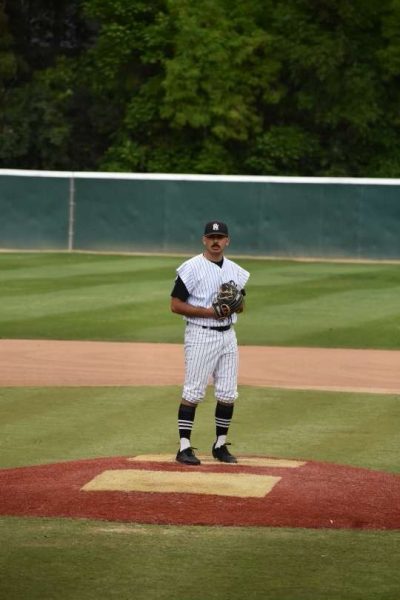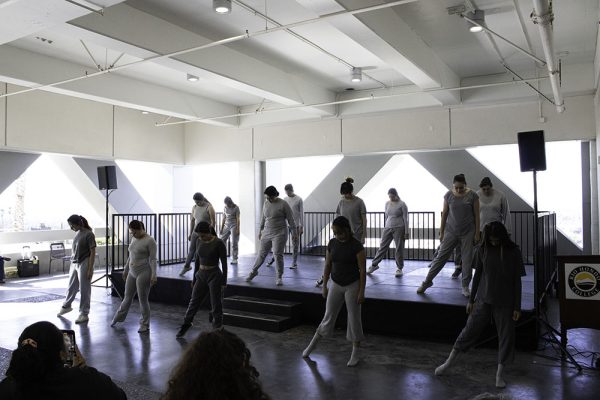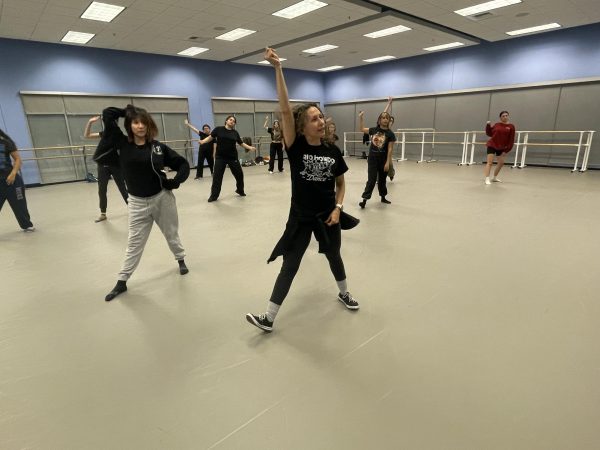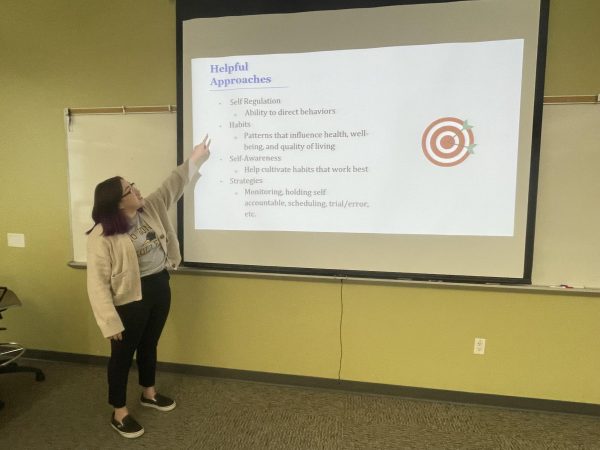Jose Antonio Vargas Shares Message of Unity
Pulitzer prize winner and immigration activist, Jose Antonio Vargas, spoke to the Rio Hondo community Nov. 16th about racial inequality and immigration policies in the United States.
The Wray theatre was filled to capacity when Vice President of Student Services, Henry Gee introduced Vargas to students and faculty.
“He’s a journalist, a filmmaker, an innovation-alized activist, a son/grandson, he’s a graduate of Valley View High School, he’s a San Francisco State graduate, he’s a pulitzer prize winner, founder and CEO of ‘Define American,’ he’s undocumented, he’s gay, he’s filipino, and he is ‘here to stay American,” said Gee.
Vargas started his speech by stressing that in the five and a half years he has been in the forefront of immigration activism, this has been the “darkest time: of his work. With all of the emails and messages he’s been recently receiving, especially from young undocumented people, he spoke about where people can find their inspiration.
He discusses a James Baldwin poem, which exemplifies the idea that anyone in this country whom has been and felt excluded, has walked a figurative tightrope, a continuous balancing act one maintains in society; and in such a way of life, he finds beauty in the courage that it takes when you’re oppressed in this country.
Vargas moved the conversation to focus on the continued culmination of racism, ignorance, and the internal fear of the unknown that has become more active since September 11th.
“If 9/11 brought the country together under simplistic slogans… I would argue and propose that post 11/9 we consist on complexity, and uncomfortable difficult truths, and the absolute need for intersectionality, ”said Vargas.
He said that due to domestic terrorism, the importance of the Dream act was replaced with the persecution of Muslims and immigrant Americans; which continues today.
This line was his transition into the bulk of his speech, which was discussing these “uncomfortable truths” that have developed and permeated through our socio-political culture within the recent decade.
The first reality he presented was how he believes that we are living through a literal civil war and a reconstruction that are simultaneously taking place. To support his claim he talked about how there was media misconception of racial equality when Barack Obama was first elected to president, whereas his presidency had only really legitimately started the racial conversation. With the first Person of Color (POC) deporting over three million immigrants within the time frame of his terms, the conversation of racial and undocumented peoples relations have just begun.
“In the past 80 years, 55% of the total population grow come from Latinos and Asians,” he said. Vargas discussed how the black lives movement continues in its effort of racial equality, especially because of this new reality where for the first time in America’s history, caucasian people are an emerging racial minority all across the country.
The second “uncomfortable truth” he discussed was the the “en-whitening” of America, which proclaims the idea that “white” people are not the center of the world. He talked about how POC are always the ones studied, and taken a larger sociological examination of, where we need to focus on white society and how they have developed as a culture. He then stated that POC need to stop immediately ending a conversation by calling someone or something “racist.” He described that that discriminated against the need to put their focus on two different types of fronts:
“You have to carry the liberation front…and at the same time we have to educate white people about stuff. So when are white people going to start talking to each other, Republican and Democrat alike.” Vargas said.
He stresses that people need to talk to each other, and you should try to ignore biased and comfort zones, labels of what’s good or bad, as it doesn’t really mean anything if you don’t have conversations about topics
The third “uncomfortable truth” is one that describes the imperative need for a new “language” that is able to be liberating, accessible to all whom would subscribe to it, and one that is able to connect every different type of person. By language, he means to create a system of narratives that would be able to change
America into a place that has complex nuanced issues that can be directly discussed and noticed.
Vargas states that in the major society, these issues aren’t discussed and simply forgotten as long as the role of said ignored is fulfilled. He detailed this claim by discussing a story he wrote for Time Magazine on why he wasn’t deported after coming out as an undocumented immigrant.
“So long as someone’s mowing your lawns and serving your drinks, so long as someone is babysitting your kids or are providing you with the very labor that you can’t live without, so long as someone is in the central valley picking your strawberries and your lettuce, you’re good. Right, it’s not your problem, it’s Mexico’s, it’s the border, it’s the wall.”(24:41) Vargas said.
This part of the discussion was a lead into another detail of his speech which talked about the platform that needs to be created for these issues.
“You cannot change the politics of an issue, unless you change the culture in which people talk about an issue,” Vargas said.
A way he has worked to open a channel for this discussion was by founding DefineAmerican.com. This program works to create a platform to discuss the issues of immigration reform, and holds a collection of undocumented immigrants’ personal stories.
He then brought up his “facts matter” campaign, which simply brings to the forefront the factual information and context that is misconstrued by the the many channels that exist in our culture and media.
“How can goods and commodities travel more easily than people?” He said a major result of this misconception of facts and the labeling of people is that the consumer products that are shipped all over the world have more legality and migrant rights than human beings do.
The penultimate idea that he presented to the crowd was that the fact the we are in this situation because of our inability to discuss complex topics and our willingness to give easy answers to said topics. He stated that as people, we need to address uncomfortable issues and talk to those who don’t always validate your stance.
His final question was debating the issue of what people do to deserve to live here; how does one earn their citizenship and how does someone define themselves as an American. Ending the primary phase of the event, he concluded it by taking questions from the audience and encouraging everyone to join him and the rally that was happening on campus to turn RHC into a Sanctuary for undocumented immigrants.
“I really believe that listening is a radical act that we need to do more of from all sides. Whether you’re undocumented or you are a U.S. citizen, I think listening is a radical act, and the question of how you define ‘American’ is the quintessential question that we should all ask ourselves,” Vargas concluded.
Jose Antonio Vargas is an pulitzer prize winning journalist, director, activist and undocumented immigrant. He can be reached at joseantoniovargas.com or by [email protected].








